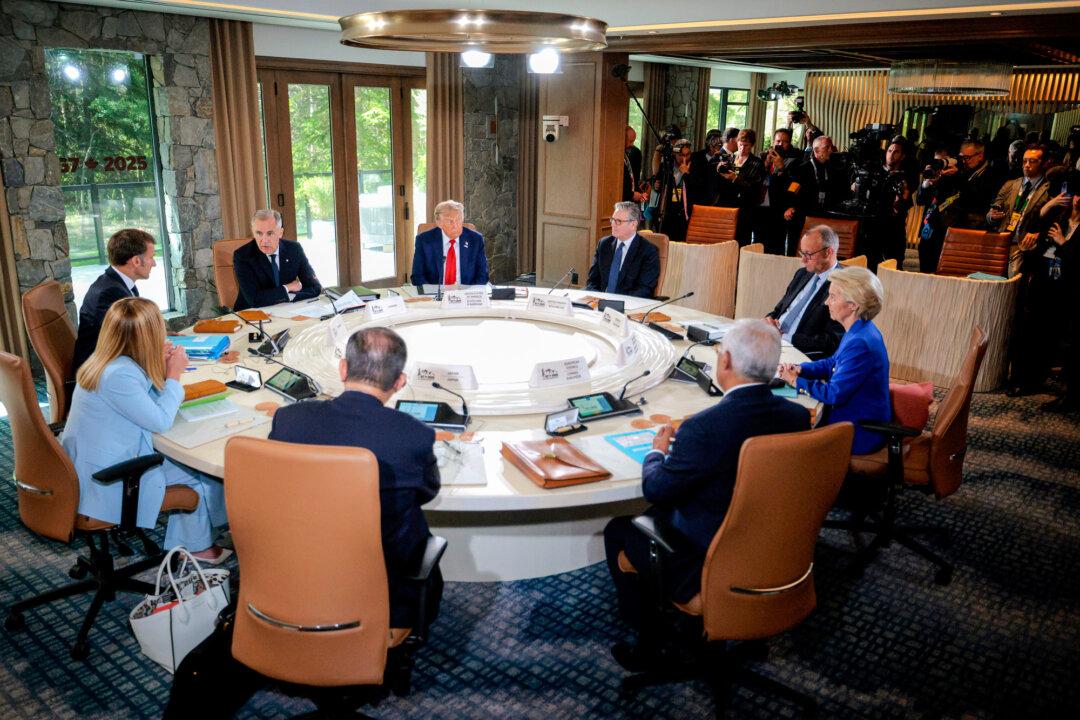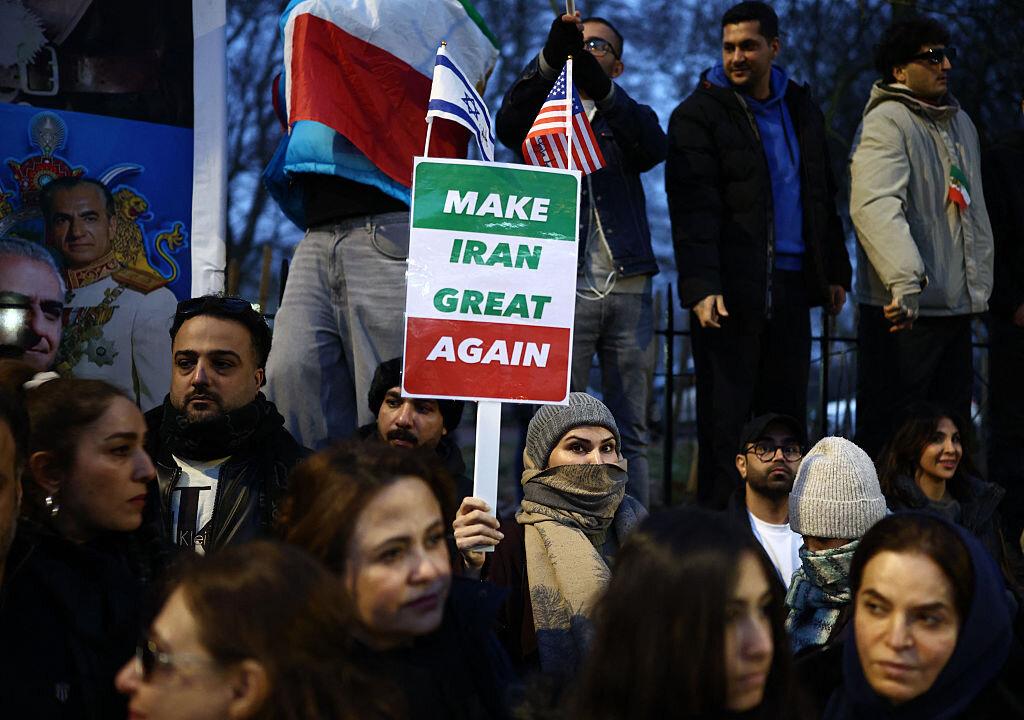Commentary
U.S. President Donald Trump, during the first year of his second presidency, severely shook strategic relationships with key historical allies in the Anglosphere, the traditionally English-speaking societies of the world.
Will this ultimately reshape what we think of as “the West” and strengthen U.S. security as well as that of the other Anglophone states? Will it help finalize the end of the reign of the Communist Party of China (CCP)?
Trump has also shaken U.S. relationships with European member states of the North Atlantic Treaty Organization (NATO), the People’s Republic of China (PRC), and others. Clearly, these “breaks” have different origins and different ramifications.
The fundamental question emerges: Is this something brought about by a deliberate policy of “re-setting” U.S. global domination of its global security relationships, or is this designed to completely end old alliances with a view to building a more centralized global domination by the United States?
It has been taken as a core principle of the U.S. strategic posture of much of the past century that the Anglosphere relationship was solid and irreversible, in terms of underlying socio-ideological compatibility, as well as in the legal, economic, and military senses. Trump’s triumphant State Visit to the UK in September 2025 reinforced the view that he sees the anglophone states as intrinsically intertwined with U.S. values, but that current political attitudes may be the impediment in, say, the UK, Canada, and Australia, to U.S. or Western interests.
The FiveEyes Accord (essentially the UKUSA Agreement, signed in March 1946) provided the highest levels of intelligence cooperation between the United States, UK, Canada, Australia, and New Zealand, and has been regarded as the primary security partnership in the world.
This has effectively been broken for a decade and possibly much longer. While the volume of intelligence product shared between the partners has risen exponentially, the result has been, nonetheless, that the leadership of the FiveEyes countries agree on very little. So much for common intelligence yielding common views on threats and opportunities. That is not to say that FiveEyes does not yield valuable results, but it has not stopped the political divergence of the member states.
NATO, too, has essentially lost its mission. It achieved its objective in 1990–91 by seeing the collapse of the USSR and the Warsaw Treaty Organization. However, NATO—the perfect military alliance—then did not redefine its mission, other than to artificially re-define post-Soviet Russia as the USSR under another guise. This is only partially peripheral to the question of the future of the Anglosphere: the core of NATO was always the United States, UK, and Canada.
NATO, arguably, was superceded in terms of strategic potential by the AUKUS (Australia, UK, United States) Treaty of 2021, but even that, because it preceded the second Trump administration, is now on very shaky ground. Like FiveEyes and NATO, AUKUS may continue, but without, at least as things now stand, any strong purpose, strategy, or leadership.
Today, Trump is openly hostile to, and disruptive of, the governments of Canada, the UK, and Australia, but not their societies. He has some clearly-stated reasons for those differences, mostly on the basis that all three of those partners have moved along paths which have been ideologically very different from the path sought by Trump.
But was that divergence enough to “throw the baby out with the bathwater”? In other words, was it worth possibly permanently altering those relationships to the point of destruction over a short-term difference in current leaderships in the UK, Canada, and Australia? Significantly, Trump has made it clear that he has great affection and respect for the traditions of the Anglosphere, and has many deep friendships in those countries. But that has not stopped his administration from dealing humiliating blows to these partner countries.
Can the alliances be recovered and rebuilt? Will Trump succeed in re-drafting them “closer to the heart’s desire” and closer to the emerging strategic realities? Or, in the coming four years, will the Anglophone countries and Europe go on their own separate paths, for better or worse?
In other words, has Trump innately recognized that “the West” is gone, and that he would attempt to rebuild it in his own image, with the United States as the overwhelmingly dominant power and cultural center? This is not an entirely new idea. President George W. Bush (2001–09) tried, without a strategic plan, to tell the world: “You are either with us or against us.” He, and his father, President George H.W. Bush (1989–93), called for a “New World Order.”
Significantly, in Canada, a new election could, within the coming few years, restore a Conservative Government to the country, under Conservative leader Pierre Poilievre, who is far more ideologically and practically inclined toward Trump than the incumbent prime minister of Canada, who was shepherded into office in 2021 because of Trump’s remarks toward all Canadians. The Canadian electorate in part threw its electoral weight behind the previously unpopular governing Liberal Party, under the new leadership of former central banker Mark Carney.
And if Trump is attempting to alter fundamentals on the ground during his term in office, so, too, is Carney.
The center-left U.S. Council on Foreign Relations (CFR), once a cornerstone of the “Washington establishment,” issued a paper on Sept. 10, 2025, by Edward Alden, a CFR senior fellow. He said the fall-out with the United States over Trump’s imposition of 25 percent tariffs on auto imports from Canada, among other things, has had ramifications. It has, he said, “forced Canada to develop a new plan to face down an antagonistic United States. It is built on three pillars: unifying its economy domestically, bolstering military spending, and seeking deeper ties with European allies. Each involves a radical break with the past.”
He also cited Carney’s address after becoming prime minister in light of Trump’s tariffs and remarks towards Canada. “The old relationship we had with the United States, based on deepening integration of our economies and tight security and military cooperation is over,” Carney said. Henceforth, he said, the country would need to “fundamentally re-imagine” its economy and ensure that Canada could “succeed in a drastically different world.”
Trump had perhaps anticipated that Canada would have negotiated a new deal with the United States, and perhaps Poilievre would have done so. But Canadian sentiment moved behind Carney on this.
The reality is that Canada, now not necessarily accepting the threat environment as postulated by Washington, is moving to more independent defense procurement, and the reinforcement of local industrial capability. That is already underway, with the Royal Canadian Navy’s acquisition of the Type 26 (River-class) frigate design from the UK. And possibly a non-U.S. new fighter aircraft. To all intents, the North American Air Defense accord, NORAD, is still functioning well, operationally, but strategically is dying. So can—or will—Canada return to “the fold” with the United States as it was? Will the relationship change substantially when things settle down?
Similarly, will the UK or Australia resume “business as usual” with the United States? Has the time come, again, for talk to focus on the CANZUK concept of Canada, Australia, New Zealand, and the UK?





